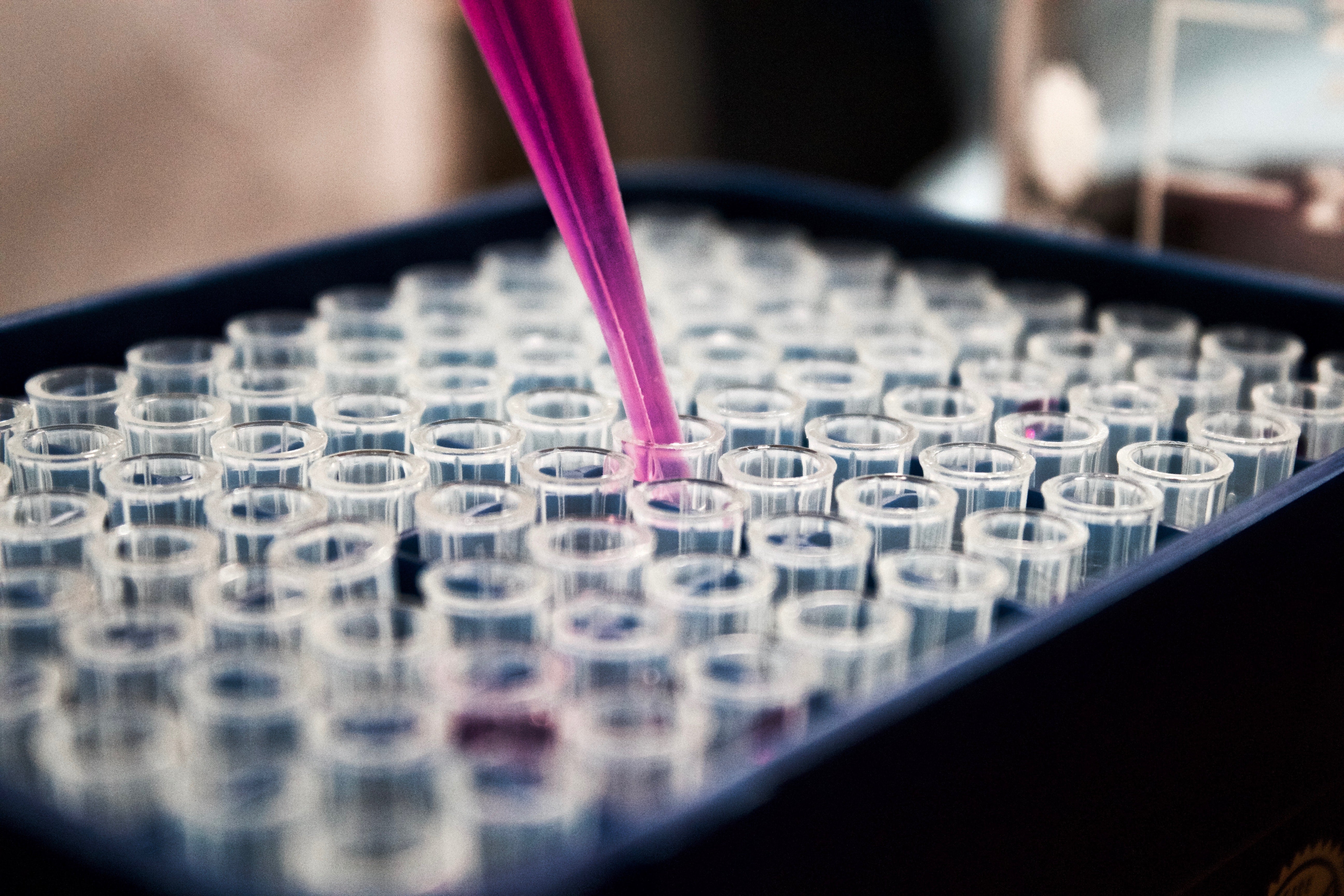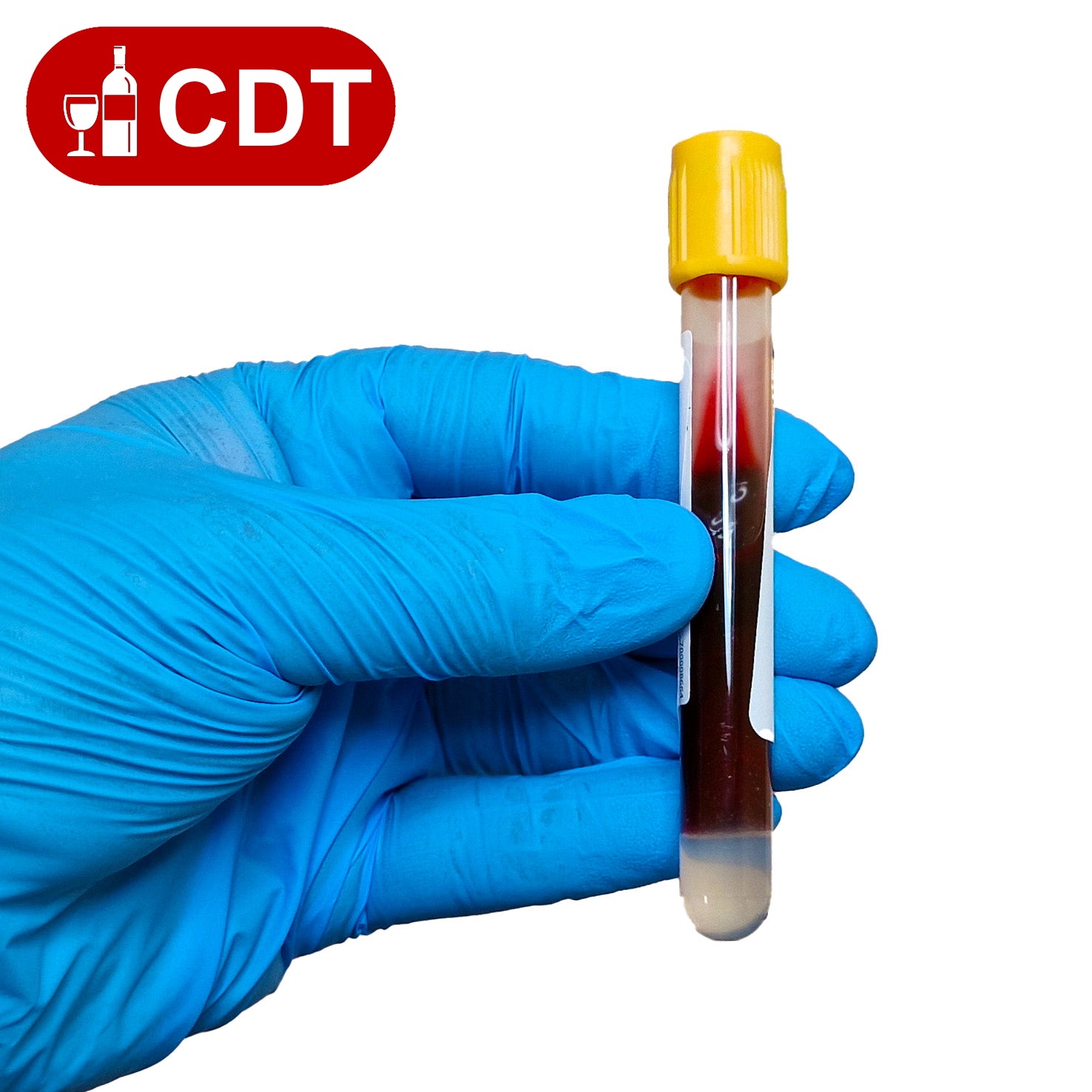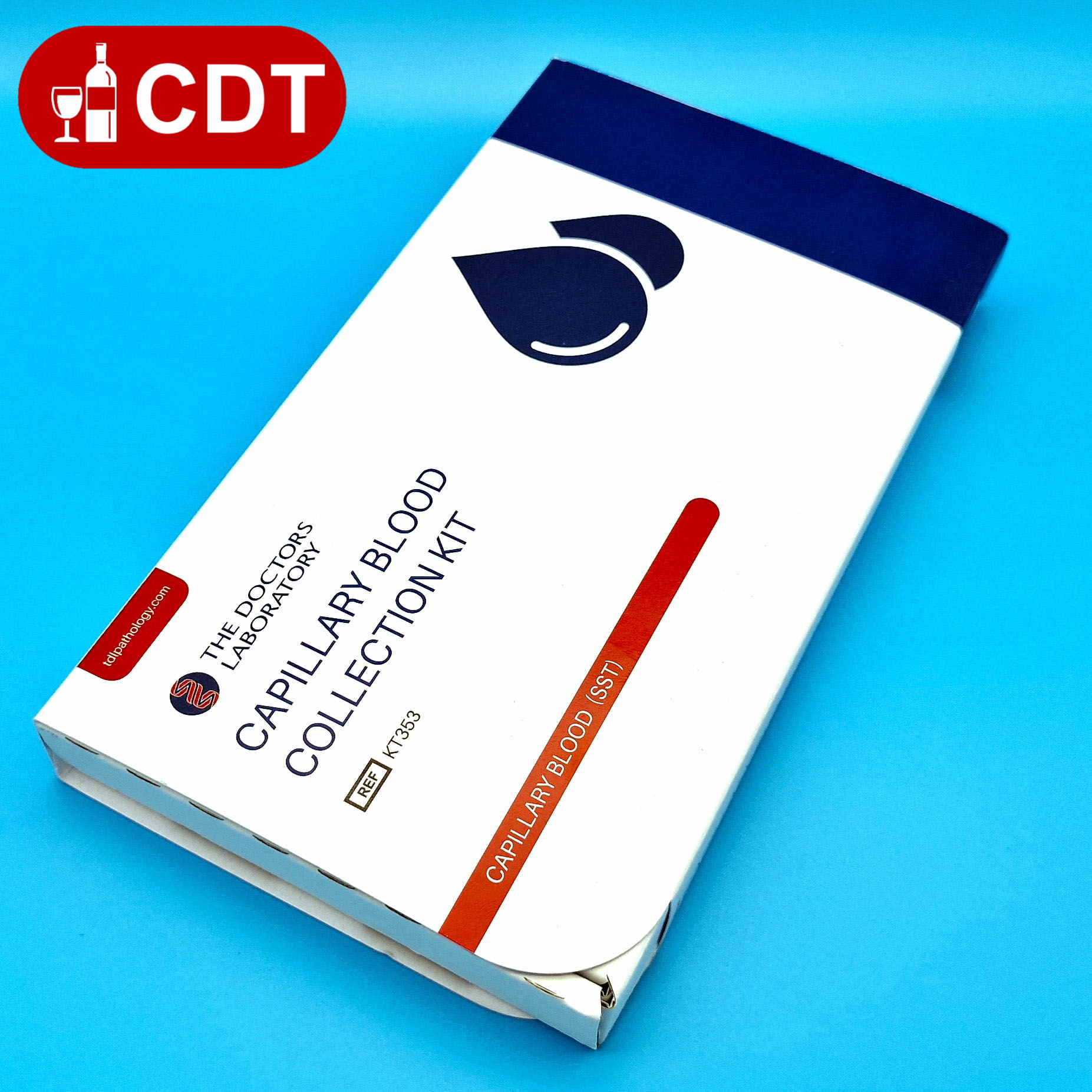
CDT Blood Testing
What is a CDT Test?
Carbohydrate-Deficient Transferrin (CDT) blood testing is a diagnostic tool that identifies chronic, heavy alcohol consumption. CDT is a protein naturally present in the body, but its levels increase with regular alcohol consumption, making it a reliable biomarker for excessive alcohol intake. While alcohol remains detectable in the blood for only up to 12 hours, CDT extends this detection window to 7-14 days.
How Much Alcohol Raises CDT Levels?
Regular consumption of significant amounts of alcohol, typically around 50-80 grams per day can elevate CDT levels over 2-3 weeks. In the UK, one unit of alcohol is 8g of alcohol. That means that 50-80g is equivalent to approximately 6-10 units of alcohol.
It's worth noting that occasional or 'binge' drinking can also elevate CDT levels. The amount drunk on each occasion, and the frequency of these episodes determine the extent to which CDT levels are affected. For example, a person drinking 200-330g of alcohol twice per week and abstaining on the other 5 days would be expected to have a CDT level of 1.5 - 3%. However, having one binge every 2 weeks and abstaining from alcohol on the other 13 days would be unlikely to raise CDT levels.
CDT Test Procedure
For this procedure, a blood sample is drawn and subsequently sent to a laboratory for in-depth CDT test results analysis. No special preparations are necessary beforehand.
Home CDT tests are done using a finger prick blood sample that is collected in a small container and sent to the laboratory for testing. Watch this video to see how this is done.
Interpreting CDT Test Results
-
Normal Range: Typically, CDT levels below 1.7% are considered normal. At Drug Test London, we have observed that clients abstaining from all alcohol typically have levels around 1%.
-
Elevated Levels Indication: Levels above 1.7% suggest prolonged heavy alcohol intake. For the DVLA, a CDT level above 2.2% might be a cause for concern and could lead to driving bans or further medical investigations.
-
Decline to Normal Levels: After cessation of heavy drinking, CDT levels can begin to decrease and are likely to return to normal within about 2-4 weeks.
-
External Influences on CDT Levels: Besides alcohol, other factors such as liver diseases, certain genetic conditions, kidney disorders, or even some medications can influence CDT levels.
-
Cheating the CDT Test: It is crucial to note that the CDT test is highly sensitive and challenging to cheat. While hydration and certain dietary habits may influence some tests, the CDT specifically measures alcohol's impact on the transferrin molecule, making it difficult to manipulate results genuinely. At Drug Test London, we would recommend that you do not waste your time trying any of these methods. The best method to get a normal CDT level is total abstinence from alcohol.
CDT Test's Limitations
-
Not for Occasional Drinkers: Primarily designed to detect ongoing heavy alcohol consumption, it might not be the ideal measure for sporadic drinkers.
-
Potential External Influences: Elements ranging from liver ailments to specific medications can skew CDT test readings.
Factors Affecting CDT Levels
While alcohol remains the primary influencer on CDT levels, other determinants can impact readings:
-
Medications and Drugs: Some drugs, particularly those that affect liver enzymes, can have an inadvertent effect on CDT levels. If you're on medication, it's essential to notify the clinician or lab technician.
-
Other Medical Conditions: Diseases that affect the liver, kidneys, or pancreas can raise CDT levels without alcohol's influence. This can lead to misinterpretations if not clarified with a full medical history.
-
Age and Genetics: Some people might have naturally higher CDT levels due to their genetic makeup. Additionally, as we age, metabolic rates change, which could affect how alcohol is processed in the body.
The DVLA and CDT Testing
The DVLA utilizes the CDT test as part of its commitment to ensuring that drivers on UK roads are fit and competent:
-
CDT Test DVLA Standards: The DVLA sets rigorous standards. Drivers or driver applicants with CDT levels above 2.2% are flagged for further medical investigation. This is because high CDT levels indicate a potential issue with chronic alcohol consumption, which is a concern for road safety.
-
Consequences of Elevated Levels: If someone has failed the DVLA CDT test, they may face driving restrictions, mandatory rehabilitation programs, or retests before their driving privileges are restored.
-
Reapplication: After facing a ban due to elevated CDT levels, individuals can reapply for their driving license. It's typically recommended to abstain from alcohol and ensure that CDT levels have returned to the acceptable range before reapplying.
CDT Testing in Various Contexts
-
British Army CDT Testing: The British Army conducts CDT tests to ensure that its personnel maintain the highest standards of fitness and readiness. They check for a range of substances, including alcohol and drugs.
-
Occupational Context: Beyond the DVLA and the military, some professions might require CDT testing, especially roles that involve public safety, heavy machinery, or decision-making under pressure.
Getting Tested
- CDT testing in person: You can have a CDT test in person at our London Patient Reception. Click here for details.
-
Home CDT Test: At Drug Test London, we have now restarted offering home CDT testing after waiting for our tests to be UKCA accredited. They can be relied upon to give as accurate results as the blood drawn at Patient Reception in London. Click here to see our home CDT test.
-
Privacy Concerns: If you wonder, "can a doctor tell if you drink alcohol?" – the answer is, yes, to a certain extent, especially if you drink excessively. But UK laws ensure the utmost confidentiality of medical records, meaning your results are protected.
Summary
Understanding the CDT test meaning, its implications, and the broader context is crucial for those navigating scenarios where alcohol consumption is a concern. With modern medicine's precision, trying to bypass or cheat such tests is not only futile but also potentially harmful.

London Patient Reception
CDT Blood Test
Attend in person to have a blood test

Finger pinprick blood test
CDT Home Testing Kit
Test at home and return to laboratory in postage-paid envelope
- Choosing a selection results in a full page refresh.

